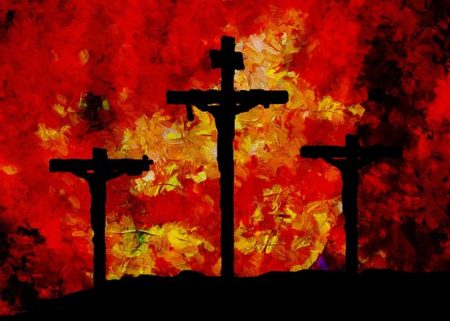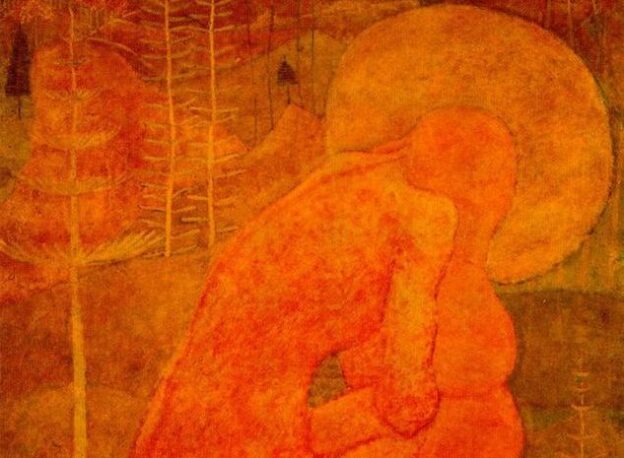Isn’t it true that life will not always turn out the way you want? Maybe you don’t get the promotion you think you deserve or you are struggling with your health. Maybe your marriage doesn’t turn out the way you imagined even though you feel you have worked hard for it and done everything you possibly can.
The truth is that we get disappointed when our expectations of what life is supposed to be are not met, even as we pray and pray, asking God, seeking his face, saying, “Do you even hear me? Are you with me?”
What are we to do in these situations?
Unmet expectations are one of the hardest things we have to deal with as people, and perhaps even more so as Christians. We have a tendency to write out our own life plans and then expect God to make it all happen.
For example, consider the expectation that if we study hard in school and get a good education, we will be able to get a good job, earn good money, and then have a good life. Or if we come to church, say our prayers, serve people, and offer ourselves to God, everything will be blessed, exempting us from the bad. But life sometimes does not turn out the way we had hoped it to be.
Now, you think you are alone in this? That it all happens to you, or only to people who are not strong enough in their faith? Think twice.
The Bible is full of examples of how the people of God often have unmet expectations and how difficult it could be for them to deal with that. The story of Elijah the prophet is one of those times:
Now Ahab told Jezebel everything Elijah had done and how he had killed all the prophets with the sword. So Jezebel sent a messenger to Elijah to say, “May the gods deal with me, be it ever so severely, if by this time tomorrow I do not make your life like that of one of them.”
Elijah was afraid and ran for his life. When he came to Beersheba in Judah, he left his servant there, while he himself went a day’s journey into the wilderness. He came to a broom bush, sat down under it and prayed that he might die. “I have had enough, Lord,” he said. “Take my life; I am no better than my ancestors.” Then he lay down under the bush and fell asleep.
All at once an angel touched him and said, “Get up and eat.” He looked around, and there by his head was some bread baked over hot coals, and a jar of water. He ate and drank and then lay down again.
The angel of the Lord came back a second time and touched him and said, “Get up and eat, for the journey is too much for you.” So he got up and ate and drank. Strengthened by that food, he traveled forty days and forty nights until he reached Horeb, the mountain of God. There he went into a cave and spent the night.
And the word of the Lord came to him: “What are you doing here, Elijah?”
He replied, “I have been very zealous for the Lord God Almighty. The Israelites have rejected your covenant, torn down your altars, and put your prophets to death with the sword. I am the only one left, and now they are trying to kill me too.”
The Lord said, “Go out and stand on the mountain in the presence of the Lord, for the Lord is about to pass by.”
Then a great and powerful wind tore the mountains apart and shatteredthe rocks before the Lord, but the Lord was not in the wind. After the wind there was an earthquake, but the Lord was not in the earthquake. After the earthquake came a fire, but the Lord was not in the fire. And after the fire came a gentle whisper. When Elijah heard it, he pulled his cloak over his face and went out and stood at the mouth of the cave.
Then a voice said to him, “What are you doing here, Elijah?”
He replied, “I have been very zealous for the Lord God Almighty. The Israelites have rejected your covenant, torn down your altars, and put your prophets to death with the sword. I am the only one left, and now they are trying to kill me too.”
The Lord said to him, “Go back the way you came, and go to the Desert of Damascus. When you get there, anoint Hazael king over Aram. Also, anoint Jehu son of Nimshi king over Israel, and anoint Elisha son of Shaphat from Abel Meholah to succeed you as prophet. Jehu will put to death any who escape the sword of Hazael, and Elisha will put to death any who escape the sword of Jehu. Yet I reserve seven thousand in Israel—all whose knees have not bowed down to Baal and whose mouths have not kissed him.” – 1 Kings 19:1-18
Who is this prophet, Elijah? Personally, I think that Elijah is one of the most interesting people in the Bible. He is one of only two men that have never known physical death (Enoch being the other). He is one of two men that appear in both the Old and New Testaments. He appeared in the time of Ahab and also with Moses on the Transfiguration mount as they spoke with Jesus. At the time of Jesus’ crucifixion, the people thought Elijah would come and rescue him. Elijah was chosen by the apostle James to illustrate for us the might of a person of prayer.
By all accounts, he is an outstanding man of God, but in this chapter, we find him at an awkward moment, where he is neither heroic nor courageous. Instead, we see a broken human, like many of us would find ourselves at times.
Let’s see what caused Elijah to go from hero to someone who gave up and wished to die.
The books of 1 and 2 Kings are about the story of God’s people in relation to God’s covenant, about kings who kept the covenant or disregarded it altogether. King Ahab was a bad king who did not care about God’s covenant, and Elijah’s ministry took place during his reign in Israel. Ahab was self-centered, an easily influenced king who had married a pagan priestess named Jezebel. Jezebel was evil.
Elijah had become Ahab and Jezebel’s target. For them, he was no more than a troublemaker. We read,
“Ahab told Jezebel all that Elijah had done, and how he had killed all the prophets with the sword. Then Jezebel sent a messenger to Elijah, saying, “So may the gods do to me, and more also, if I do not make your life like the life of one of them by this time tomorrow.”
Why would Jezebel despise Elijah so badly? They have a history together. First, Jezebel was persecuting and killing the prophets and priests of God – of whom Elijah was a part – because they were in opposition to her kingdom. And second, Elijah humiliated Ahab and Jezebel by mocking, defeating, and killing their prophets: 450 prophets of Baal, and 400 prophets of Asherah (1 Kings 18:19).
This defeating of the pagan prophets was a powerful display of God’s power and Elijah’s faith; it was a demonstration that Jezebel’s gods were powerless and the Lord was alive and on Elijah’s side, but it also made Elijah the primary target of this evil monarchy. He thought after winning the epic battle against the prophets of Baal and Asherah that Ahab and Jezebel would be stunned, repent, and convert from their evil, but instead comes a message from Jezebel, who said, “I swear to Baal, by tomorrow morning, you will be dead!” This takes Elijah totally by surprise; as a result, he seems to fall apart at the seams.
So we have this hero of faith, a valiant man about whom the Bible says, “the hand of the Lord was on Elijah,” a man of not only faith but also courage. However, after Jezebel sends word to find and kill him, this happens: “Then he was afraid; he got up and fled for his life…” After the miraculous and overpowering victory over the prophets of Baal, we find this same man afraid and running for his life.
“No! This isn’t what’s supposed to happen,” we can almost see Elijah crying out in this way. He thought he was done, because things did not go the way he expected.
What’s happening here? Elijah experienced a huge letdown. Even more, he experienced it in the midst of being faithful. He was wondering what he did wrong and if he was the person that he thought he was, if he was the right person for the job. Perhaps he thought to himself, “I did something wrong; it is my fault,” or, “I have been let down by God.”
In verses 9 and 10 we can see Elijah’s struggle:
“Then the word of the Lord came to him, saying, “What are you doing here, Elijah?” He answered, “I have been very zealous for the Lord, the God of hosts; for the Israelites have forsaken your covenant, thrown down your altars, and killed your prophets with the sword. I alone am left, and they are seeking my life, to take it away.”
If I were to paraphrase this, it might go, “I have given everything to God, I did my best, all that I could and it wasn’t enough. I am a complete failure.”
This is what’s going on inside Elijah’s head. He was so broken he even went so far to say, “It is enough; now, O Lord, take away my life, for I am no better than my ancestors.” He can’t seem to find a way out beside escaping his challenges, giving up, running away, and hiding in a cave –literally.
Can you see the drastic change? First, he defeated hundreds of evil men, and now he wishes to be dead. Isn’t this what happens to us too? The way we feel and see ourselves when we are going through struggles?
When Elijah defeated the prophets of Baal and Asherah, he experienced a degree of satisfaction and contentment, and his expectations were met. But when they were not met, he experienced anger, sadness, and fear, and this happens to us too: anger because you are mad that your expectations were not met and start looking to blame someone for it, whether others, yourself, or God. Sadness, because you grieve the loss of what did not happen. And fear, because you are afraid that your expectations will continue to go unmet.
Steven Furtick speaks of this when he writes about the “expectation gap” as the space between our expectations and our actual experiences. This gap is what we suffer as frustration that is caused by unmet expectations and goes something like this: “This isn’t what marriage was supposed to look like.” “I thought this job was going to be different.” “I never thought my kids would act that way.”
We have been there, overcome with frustration and left with nothing but unmet expectations. How are we supposed to respond? Do we tough it out and get on with life? Do we just lower our expectations? Or is there another way?
This brings me to our hope: look for the provision of God in the middle of unmet expectations. God’s plan for us may not meet our finite human expectations, but it will certainly and ultimately exceed all of them.
This is exactly what God showed Elijah. The prophet couldn’t see it because of the cloud of disappointment he was under. So God showed Elijah the big picture when,
There came a voice to him that said, “What are you doing here, Elijah?” [He was in a cave.] He answered, “I have been very zealous for the Lord, the God of hosts; for the Israelites have forsaken your covenant, thrown down your altars, and killed your prophets with the sword. I alone am left, and they are seeking my life, to take it away.” Then the Lord said to him, “Go, return on your way to the wilderness of Damascus; when you arrive, you shall anoint Hazael as king over Aram. Also you shall anoint Jehu son of Nimshi as king over Israel; and you shall anoint Elisha son of Shaphat of Abel-meholah as prophet in your place. ”
Can you see this? Can you hear? God was up to something, a lot more than what Elijah had realized. God was not denying his prophet’s challenges and emotions but was telling him, “we are not done yet, I get how you feel, but see, what we are doing together is much greater than just winning a battle; it is much greater than your personal victories. We will win together … everything.”
What God is doing in our lives is much greater than an unmet expectation. When things seem impossible, with God, there is always the element of surprise, the possibility that something greater is going to happen and change everything.
Here is a profound truth: God’s thoughts, his desires for us, far exceed our wildest expectations. We need to learn to see and define our place and purpose in life from the big picture perspective as opposed to the immediate emotions and challenges we are facing. It is at this moment when we are in the midst of volatile emotions, noise, and distractions, that we hear God’s voice telling us: I am working in the background a far greater victory for you; your unmet expectations will become surpassing expectations.
My friends, our unmet expectations are not dead ends. Don’t let go of God and don’t let go of yourself. Practice a stubborn faith and hope!
And here is the key to this: our focus shouldn’t be on getting what we want from life or this world, but on living to the fullest of our potential, listening and following God. You see? There is a shift here, from, “getting what we want,” to “pursuing what God wants.”
It is not easy; in fact, it might be the hardest thing we ever do, but our love for God will be our greatest strength which will carry us through however far and however long we need to go.









